normj
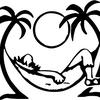
Joined: Apr 26, 2010
Posts: 882
central Indiana






|

Posted on May 27 2012 12:07 AM
Hello all,
I seem to be in the minority here. I play at least 2 hours every day. I figure I need to put in that much work just to maintain my meager level of skill.
It takes me around 15 minutes just to get warmed up and limber up the fingers. But I suppose those with younger hands and less arthritis won't need that long to get loose.
To SpaceFargo: Thanks for the tip on the metronome. I have a smart phone. Just using it to make calls is challenge enough for me. I will stick with my old wind up metronome. I would miss the tick tock of it.
Talk to you later,
Norm
|
JONPAUL

Joined: Apr 29, 2010
Posts: 2460
Venice, CA










|

Posted on Nov 24 2013 08:04 PM
Bump for this thread!!! It seems more and more difficult to find the time to properly practice every single day! And, you know if it's important to you, because you begin to feel guilty about it. I know that having 2 rehearsals a week with the odd gig thrown in keeps the chops somewhat limber, but nowhere near what they could be with daily practice. At the end of the Insect's European tour this past Summer, I remember thinking how strong my hands were and that I wanted to keep it that way at all costs! Oh well, life gets in the way. Having said all this, and while on my crazy Iron Maiden binge right now, my new plan is to play "Phantom Of The Opera" at least once every single day. We'll see how many days in a row I make it and if it makes any difference. Now, go practice!!! 
image
— Insect Surfers
The Tikiyaki Orchestra
The Scimitars
Lords Of Atlantis
Fiberglass Jungle - Surf Radio
|
Ruhar
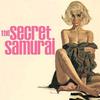
Joined: Jun 21, 2007
Posts: 3909
San Diego, CA





|

Posted on Nov 25 2013 10:07 AM
When I force myself to "practice" every day, I will get into a rut and not be able to break out of common patterns I am currently playing. Taking time away from the guitar can help break me from that. It also gives my mind a break to pick up different ideas from other musicians that might rub off in my own writing.
I would rather approach it in terms of "writing every day". That seems a better approach for me. Then again, I just don't feel inspired to write some days. On those days, I just put the guitar down and find something else to do.
— Ryan
The Secret Samurai Website
The Secret Samurai on Facebook
|
DannySnyder
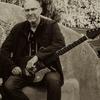
Joined: Mar 02, 2006
Posts: 11010
Berkeley, CA











|

Posted on Nov 25 2013 10:15 AM
May I suggest an easy alternative to days you don't want to practice (many for me)? Critical listening. We can all learn much from comparing songs between different writers, or the same writer in different time periods. Or songs that work for you vs songs that don't. You'll gain valuable insight into your own personal musical vision.
— Danny Snyder
Latest project - Now That's What I Call SURF
_
"With great reverb comes great responsibility" - Uncle Leo
I'm back playing keys and guitar with Combo Tezeta
|
RobC

Joined: Oct 11, 2010
Posts: 152
Bainbridge Island, Washington


|

Posted on Nov 25 2013 12:45 PM
I have a guitar in my office. And I use every excuse to pick it up.
Note I work for myself and there is nobody but me busting my chops to get more work done.
The best part is being able to immediately record melodies or other ideas on my iphone. At the end of the day I listen to them again (because I have completely forgotten it) and lay it down in the studio. This is a form of practice fitting in more with Danny's critical listening tip. Reproducing a new sound in your head helps dexterity, your musical theory and training your ear.
It is fun and maddening all at the same time.
|
LordWellfleet
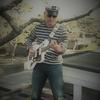
Joined: Jul 12, 2012
Posts: 170
Cape Cod, USA


|

Posted on Nov 25 2013 03:38 PM
I wonder if the pros here follow any sort of practice routine. As an amateur hack, I've been fairly haphazard, but I have begun to try to impose a little structure. As often as time permits, I try to do 15-20 minutes working on something technical (for instance, a scale or a new lick), then I run through my repertoire, playing along to backing tracks or recordings, then I work on learning a new song (or, if I've got one cooking, a composition). That would be about a two-hour session.
My problem, especially as someone trying to improve, is when my available time gets shorter I tend ditch precisely the things I should be working on! So, first to go is usually the technical stuff, then the work on new songs. Consequently, a lot of my "practice" sessions boil down to a simple run through of songs I already know. Not entirely useless, but not exactly helping me improve.
Anyway, it would be helpful and interesting for me to get some insights on how accomplished players go about things.
|
casey

Joined: May 18, 2006
Posts: 520


|

Posted on Nov 26 2013 03:26 AM
I've recorded our band a number of times on a multi-track recorder and can replay songs with my lead part deleted. Gives me a backing track to practice to and really helps to prepare for a job. Once the weather turns cold here I go back to working my way through the "A Modern Method for Guitar" series. Tough to work through but it really helpful.
https://play.google.com/store/books/details?id=jNbNC8XavzgC&source=productsearch&utm_source=HA_Desktop_US&utm_medium=SEM&utm_campaign=PLA&pcampaignid=MKTAD0930BO1
|
psychonaut

Joined: Dec 08, 2007
Posts: 1294


|

Posted on Nov 26 2013 07:02 AM
When I wake up each morning, I practice for at least an hour. That usually extends to four hours throught the day. I practice in a very systematic way;
First I run through major, minor, diminished, and dominant 7th arpeggios. Then I move on to scales and phrases for a bit. I'll then run through some chord progressions, which I'll record and then improvise over for a while. Then I move on to whatever songs I'm working on at the moment. Reading some of the replies, I know this must seem excessive, but I don't think it's enough! Mastery of any given instrument requires an obscene amount of practice. The amount of practice is directly related to the level of mastery one achieves. There is no such thing as over practice. When you practice, the first 20 mins or so will only get you to the point you left off at the last practice session. You have to push past this point for any gain to occur.
Conssider this: If you practice for an hour a day, in a year you will have accumulated 365 hours of practice. At four hours a day, you will have practiced for 1,460 hours! At that rate you WILL master the instrument in short order. Of course you have to avoid staying in your comfort zone and always push a little further each day. A good method is to use a metronome and increase the tempo one click each day to where it's hardly noticeable, before you know it...
Practice SLOWLY. I impose the three time rule on myself, that is I'll play each thing three times through perfectly before I move on. If I make a mistake I start over. The point of this is so that you don't practice mistakes. Only play as fast as you're able to play mistake free. Don't worry about speed, it will come by itself before you know it. Use a metronome; you'll develop good tempo and increase accuracy. Always strive for eveness and accuracy.
My ultimate goal is to be able to play and improvise anything in any key with as much ease as I can formulate a sentence with when I speak. That's what music is after all, a language. You just have to master the grammar and vocabulary. Now excuse me, I must go practice.
— https://www.facebook.com/coffindagger
http://coffindaggers.com/
http://thecoffindaggers.bandcamp.com
|
crumble

Joined: Sep 09, 2008
Posts: 3158
Guildford England





|

Posted on Nov 26 2013 08:10 AM
psychonaut wrote:
I know this must seem excessive, but I don't think it's enough! Mastery of any given instrument requires an obscene amount of practice.
Nicely said and I agree on nearly all points.
I once read a study which claimed that people who dreamed the most were students or anyone studying heavily. It's because the mind needs to filter what is useful for long and short term memories. If I can't get a guitar piece right then I give it a rest for a couple of days. Then when I next pick up the axe I know what's gone into long term memory and where to apply focus.
|
raito

Joined: Oct 16, 2008
Posts: 549
Madison, WI



|

Posted on Nov 26 2013 12:24 PM
I'm sort of piggybacking on psychonaut's thoughts.
Practice itme is important, but so is the quality of the practice. As an extreme example, if I played Twinkle, Twinkle Little Star 4 hours a day for years, I would master playing that song. But I wouldn't master the instrument.
And when I'm practicing playing a sing, if I make a mistake, I do not stop and start over. I play to the end, then start over. I've found that it's important to be able to play through the bad notes. (If I'm doing some sort of technical practice, I might stop in the middle of a rouh spot, but I'm not practicing the song at that point).
I think part of mastery, and nearly all of talent could be better described as interest. Or obsession. The guys most interested are going to put in the most quality time. The guys with talent focussed their time better than those without.
|
blueruins

Joined: Mar 05, 2010
Posts: 362
Mauna Lani, HI

|

Posted on Nov 26 2013 05:05 PM
Love this entire post 
psychonaut wrote:
When I wake up each morning, I practice for at least an hour. That usually extends to four hours throught the day. I practice in a very systematic way;
First I run through major, minor, diminished, and dominant 7th arpeggios. Then I move on to scales and phrases for a bit. I'll then run through some chord progressions, which I'll record and then improvise over for a while. Then I move on to whatever songs I'm working on at the moment. Reading some of the replies, I know this must seem excessive, but I don't think it's enough! Mastery of any given instrument requires an obscene amount of practice. The amount of practice is directly related to the level of mastery one achieves. There is no such thing as over practice. When you practice, the first 20 mins or so will only get you to the point you left off at the last practice session. You have to push past this point for any gain to occur.
Conssider this: If you practice for an hour a day, in a year you will have accumulated 365 hours of practice. At four hours a day, you will have practiced for 1,460 hours! At that rate you WILL master the instrument in short order. Of course you have to avoid staying in your comfort zone and always push a little further each day. A good method is to use a metronome and increase the tempo one click each day to where it's hardly noticeable, before you know it...
Practice SLOWLY. I impose the three time rule on myself, that is I'll play each thing three times through perfectly before I move on. If I make a mistake I start over. The point of this is so that you don't practice mistakes. Only play as fast as you're able to play mistake free. Don't worry about speed, it will come by itself before you know it. Use a metronome; you'll develop good tempo and increase accuracy. Always strive for eveness and accuracy.
My ultimate goal is to be able to play and improvise anything in any key with as much ease as I can formulate a sentence with when I speak. That's what music is after all, a language. You just have to master the grammar and vocabulary. Now excuse me, I must go practice.
— http://blueruins.bandcamp.com
|
ludobag

Joined: Jun 05, 2010
Posts: 620
at south of


|

Posted on Dec 06 2013 10:37 AM
i would love to have the same dicipline !but not enought time in a day !
the more is 1 hour by day (there are days where i haven't the time )
but i try to be more applicated on week end (more than ten hours )
but week end are too short too
|
pompahawk

Joined: Jul 04, 2010
Posts: 41
NoHo


|

Posted on Dec 06 2013 10:46 AM
You are supposed to practice? Shit.
— Sweater up!
http://thereigningmonarchs.bandcamp.com
|
Fady

Joined: Mar 07, 2010
Posts: 2226
North Carolina









|

Posted on Dec 07 2013 09:03 AM
psychonaut wrote:
When I wake up each morning, I practice for at least an hour. That usually extends to four hours throught the day.
I share the admiration for your full post, Victor - this is great on so many levels, and particularly the truth - for most people this is the kind of commitment necessary to be a musician. A desire held by many, achieved by a comparative few - getting there is no small commitment. At that level, it really is a lifestyle, not a hobby.
psychonaut wrote:
I practice in a very systematic way; First I run through major, minor, diminished, and dominant 7th arpeggios.
I also wanted to comment on this part specifically. The arpeggio approach through scales/chord shapes has proven to be a really big benefit to me in ear training (among other things). It has helped my hearing of intervals and in turn picking stuff off records - particularly chords. Not to say I'm that all that great at it yet, but starting to spend time on these variants specifically (major, minor, diminished, dominant 7th) without a doubt has made a direct and significant improvement on my "ear".
— Fady
El Mirage @ ReverbNation
|
Badger

Joined: Nov 16, 2013
Posts: 4536
Wisconsin







|

Posted on Dec 08 2013 07:27 PM
Reaching out & regrasping the music of my youth after long hiatus, the technical deficit after playing country/southern rock in roadhouses was evident immediately. It's still fun for me so I try to keep it that way. I do adhere to a few things when working on something, things which coincidentally jive with some advice from a dear friend and pistol coach.
"First, are you & the tool ready for practice?" In this case, instead of warming up with some (boring) groups on paper, I run some scales which focuses me on the task at hand & warms up some slightly arthritic hands.
"Shoot it clean first (no penalty points); you'll go faster when you get bored." So something I'm working on will be played as slowly as needed at first to get it right, with metronome at hand if needed.
"Practice the match as you're going to shoot it." So something I think I've learned, song/technique, etc., gets played several times through at the 'real' speed.
Then I go noodle about & have some fun or just do some critical listening to North Sea Surf Radio. Before quitting I go back one more time & run that thing I was trying to learn or improve on.
(Right now, with no 25 yr old bar-band distortion and bends to disguise it, I'm working on some cleaner & faster picking and find songs that make me work on that.)
Frankly though, this is all like falling in love again with your high-school sweetheart. (Ahh, to know then what we know now...)

— Wes
SoCal ex-pat with a snow shovel
DISCLAIMER: The above is opinion/suggestion only & should not be used for mission planning/navigation, tweaking of instruments, beverage selection, or wardrobe choices.
|
PrestonRice

Joined: Oct 05, 2012
Posts: 1725
Austin, Texas


|

Posted on Dec 08 2013 10:44 PM
Spent three hours behind the drums today. Working on using my double kick in a way that feels natural and sounds tasteful. Picked up a couple cymbals and a real nice Gibraltar kick and this kit sounds fantastic. I still need a little work before I'm ready to start playing out again.
— IMO.
|
Hammond101
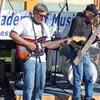
Joined: Feb 22, 2013
Posts: 342
SoCal USA
|

Posted on Dec 09 2013 06:14 PM
There is no substitute for diligent practice, period.
— Keep it Drippy Brothers and Sisters!
|
RevGeo

Joined: Nov 14, 2013
Posts: 24
|

Posted on Dec 10 2013 11:16 AM
LordWellfleet wrote:
I wonder if the pros here follow any sort of practice routine. As an amateur hack, I've been fairly haphazard, but I have begun to try to impose a little structure. As often as time permits, I try to do 15-20 minutes working on something technical (for instance, a scale or a new lick), then I run through my repertoire, playing along to backing tracks or recordings, then I work on learning a new song (or, if I've got one cooking, a composition). That would be about a two-hour session.
My problem, especially as someone trying to improve, is when my available time gets shorter I tend ditch precisely the things I should be working on! So, first to go is usually the technical stuff, then the work on new songs. Consequently, a lot of my "practice" sessions boil down to a simple run through of songs I already know. Not entirely useless, but not exactly helping me improve.
Anyway, it would be helpful and interesting for me to get some insights on how accomplished players go about things.
Well, one thing I do is consider what I'm doing playing, not practicing. That may not seem like much, but to me it makes a difference. Another thing I do is to learn to play tunes. I spent most of the 60s, 70s and 80s learning how to go 'dwiddley-dwiddley-dwiddley over what ever chord progression presented itself. Now I like learning a tune and then figuring out another way to do it. For example, most of us play 'Perfidia' out of the open position, like the Venture's version. Try finding the same notes in a different place on the neck and play the melody there. Doing that really gets you to know the neck one hell of a lot better. At this time of year I play a lot of Xmas carols. I try to learn a new one every holiday season. First I'll learn the basic melody and chords and then find different ways (and places on the neck) to play it.
Nothing wrong with learning scales, modes, chords etc. But don't forget that the end result of what we are doing is to play music. After almost 50 years of being a musician I'm still amazed at the beauty and complexity of what is simply organized sound.
Don't forget what Bach said: 'Playing music is easy; it is simply a matter of playing the correct note at the correct time.' Yeah, right - thanks, Johnny-boy.
Last edited: Dec 10, 2013 11:18:48
|
tubeswell

Joined: Sep 24, 2011
Posts: 1424
Wellington, NZ






|

Posted on Dec 13 2013 09:17 AM
I practice several times a day everyday. Other times I set aside to learn new tunes or write. But most of my time is taken up by work, or housework or running around after the family. So practice time is really precious. I have an acoustic guitar in the lounge which I grab every time I walk past and belt out a few of the latest riffs I'm working on. We have band practice about once a week where we mainly learn new stuff. Sometimes (but not always) before a gig, we will get together the night before and go over beginnings and endings and tricky bits, and it definitely pays off. A lot of really committed guys in the line-up at the moment
— He who dies with the most tubes... wins
Surf Daddies
|
RobC

Joined: Oct 11, 2010
Posts: 152
Bainbridge Island, Washington


|

Posted on Dec 13 2013 06:13 PM
I have been recording a lot lately both originals and covers with a drummer friend of mine. We upload files to the Sky drive (which is awesome by the way- no more sneakernet thumb drives or FTP sites).
It really makes you work on precision and technique and timing when you know you are about to upload a track that others will rely on to record over. It is nerve wracking but really good practice.
I also pick one of my favorite lead riffs surf or not and emulate the playing style of the artist. This gets me to branch out a bit on technique and doesn't get stale.
|











































